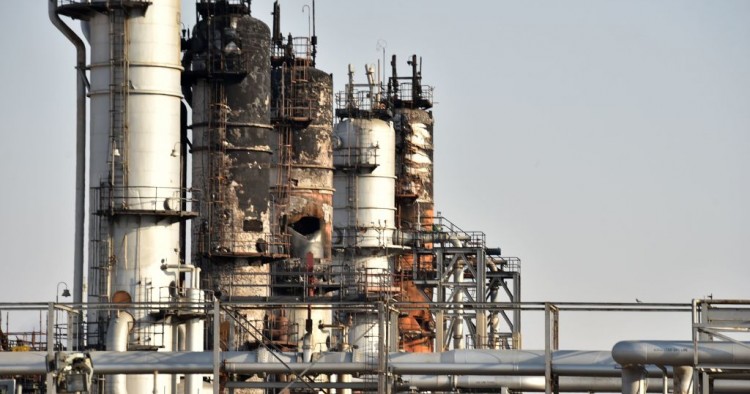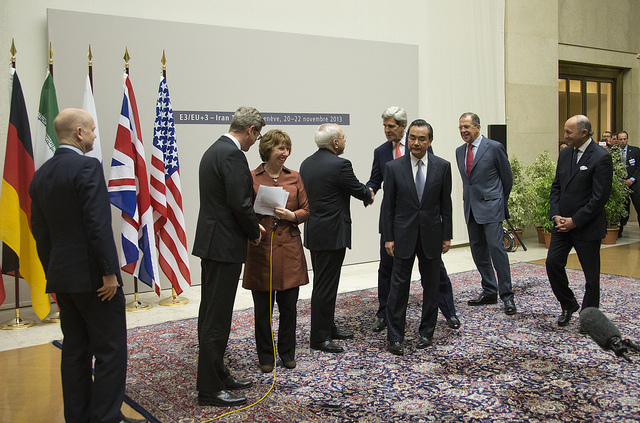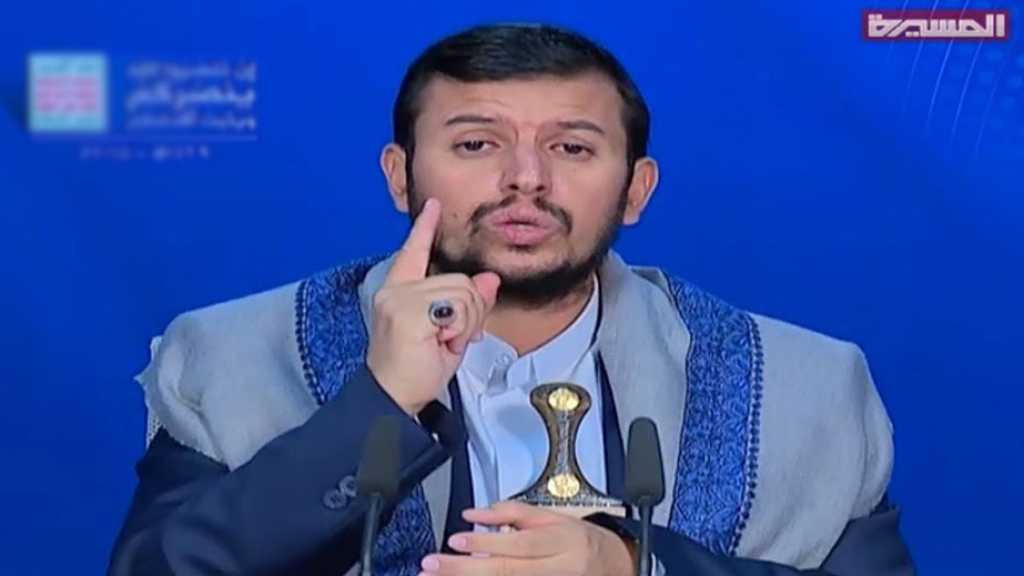**English Machine translation Please scroll down for the Arabic original version **
On the rockets that deprive Israeli leaders of sleep: Friedman’s letter to his “dear” Biden
ِAl-Akhbar
Wednesday, December 2, 2020
The message from the American journalist, the Zionist ideologues, Thomas Friedman, deserves to be read closely.

It is not similar to his articles and books, which are fraught with missionary ideology, which is associated with his personal convictions, which have been lied to by subsequent developments as a whole. He probably wishes to forget his untold narratives of “happy globalisation” and the positive and benefits it will bring to the peoples of all the world, which he has compiled in two books: “Lexus and the Olive Tree”, and “The World Is Flat”. This time, in a remarkable article entitled, “Dear Joe, it is no longer a matter of Iranian nuclear”, he does not speak of his whim. Friedman wanted to address the president-elect, an ardent supporter with close and historical ties to the Democratic Party, on behalf of Israel and its support system in the United States, not just the lobby, commissioned or without them. The article – The message is very clear and candid, reinforcing the conviction that the essence of the strategic battle between the U.S.-Israeli alliance and its allies in the region, and between the axis of resistance, and at the heart of it Iran, is the development of its specific missile capabilities and its allies’ help to do the same. Of course, the attempt to prevent Iran from developing scientifically and technologically, particularly in the nuclear field, and as a result of its independent political choices, is among the central objectives of the hostile alliance, as confirmed by the targeting of its scientists and nuclear facilities, but not the first target on its agenda. Precision missiles, or the “game-changer” as used in dozens of Israeli, U.S. and Western reports, are the number one priority on this scale, and are likely to remain so after Biden enters the White House.
If an Arab writer or expert dares to say that Iran’s missile program deprives Israeli military experts of sleep, it will be judged by the “armies of experts and analysts” Arab “realists” as a “media mouthpiece” of resistance. But they will not dare to treat their friend, and in an earlier era, their reference, Thomas Friedman, in the way he writes that “what some Israeli military experts will admit to you is that Iran’s possession of a nuclear weapon is not what keeps them awake all night, because they don’t think Tehran will use it, because that would be suicide, and Iran’s religious leaders are not suicide bombers. What worries them is Iran’s new weapons, the precision missiles it used against Saudi Arabia, which continue to try to export them to its proxies in Lebanon, Yemen, Syria, and Iraq, posing a deadly threat to Israel, Saudi Arabia, the UAE, and U.S. forces in the region.”

The Zionist-American theorist does not hesitate to describe the Abqaiq attack, which targeted Saudi oil industries with precision guided missiles and Drones, as he claims, which he accuses Iran of direct responsibility for, of “Pearl Harbor Middle East”, and believes that this region has been reconstituted by Iranian missiles and U.S., Israeli and Gulf responses to it. He concludes that the new U.S. president will face enormous pressure not to return to the nuclear deal as originally drafted, to include the missile program in negotiations with Iran, and to use the “power paper” represented by the harsh sanctions imposed on it to bind it by making concessions about it.
The missile program was not put under the microscope at the time of the signing of the nuclear agreement.
Perhaps it should be remembered that Iran’s missile program was not put under the microscope at the time of the signing of the nuclear deal with Iran.

To appreciate the position that the Obama administration used when it agreed to the original version of this agreement, it was assumed that Iran was suffering because of what looked like the international embargo that was being imposed around it at the time, that it was draining in Syria and Iraq, and that these conditions provided an opportunity to come to terms with it, and that it is not at its peak. However, the major changes that took place in the Syrian arena after the Russian intervention in September 2015, three months after the signing of the agreement, and the subsequent transfer of qualitative military and missile capabilities to Syria, and the Israeli and American attention to the accelerated development of the missile program in Iran, may be one of the most prominent factors explaining the slow lifting of sanctions stipulated in the agreement, and preventing western companies and institutions from opening up to this country and investing in it, because of warnings and pressure from the United States and sometimes public.
It was these military, technological and field variables that led Donald Trump and his team to withdraw from the agreement and adopt “extreme pressures” against Tehran, without succeeding in halting the quantitative and qualitative growth of its missile arsenal and its allies. How will Biden and his administration deal with the “stubborn” and different realities that prevailed at the time of the signing of the nuclear deal? What is certain is that Israel’s balanced supporters in this team and beyond and in the various institutions of the U.S. state, i.e. the supporting system, will also stay up all night if they have to, to get the president-elect to be tough on Iran’s missile program, whose continued growth leads to a gradual shift in the balance of power to the detriment of Israel and U.S. hegemony in our region.
Related
- Dear Joe, It’s Not About Iran’s Nukes Anymore
- Israeli aircraft and resistance deterrence الطائرات الإسرائيلية والردع المقاوم
- Kochavi’s threats and claims, what are their background, and what is the path and response? تهديدات كوخافي وادّعاءاته ما خلفيّتها وما المسار والردّ؟
- Zionist Entity Admits Failure in Preventing Hezbollah from Possessing Precision Missiles
- New U.S. Foreign Policy Problems (2) International files إشكاليات السياسة الخارجية الأميركية الجديدة (2) الملفات الدولية
- “Israel’s” Channel 13: The Iranian Capabilities in Yemen Are What Worries ‘Israel’ The Most “القناة 13”: القدرات الإيرانيّة في اليمن أكثر ما يقلق “إسرائيل”
عن الصواريخ التي تَحرِم قادة إسرائيل من النوم: رسالة فريدمان إلى «عزيزه» بايدن
الأربعاء 2 كانون الأول 2020

الرسالة التي وَجّهها الصحافي الأميركي، الصهيوني العقائدي، توماس فريدمان، تستحقّ القراءة بتمعّن. هي لا تشبه مقالاته وكتبه المشحونة بأيديولوجيا تبشيرية، تشي بقناعاته الشخصية، التي كَذّبتها التطوّرات اللاحقة بمجملها. وغالب الظن أنه يتمنّى أن تُنسى سرديّاته المغفلة عن «العولمة السعيدة» وما ستحمله من إيجابيات وفوائد لشعوب العالم قاطبة، والتي جمعها في كتابين: «سيارة ليكسوس وشجرة الزيتون»، و«العالم مسطّح». هذه المرّة، وفي مقال بعنوان لافت، «عزيزي جو، لم يعد الأمر يتعلّق بالنووي الإيراني»، هو لا ينطق عن هواه. أراد فريدمان أن يخاطب الرئيس المنتخَب، وهو من مؤيّديه المتحمّسين ولديه علاقات وثيقة وتاريخية بالحزب الديمقراطي، نيابةً عن إسرائيل والمنظومة الداعمة لها في الولايات المتحدة، وليس مجرّد اللوبي، بتكليف منهما أو من دونه. المقال – الرسالة شديد الوضوح والصراحة، ويعزّز القناعة بأن جوهر المعركة الاستراتيجية الدائرة بين التحالف الأميركي – الإسرائيلي وأذنابه في المنطقة، وبين محور المقاومة، وفي القلب منه إيران، هو تطوير الأخيرة لقدراتها الصاروخية النوعية ومساعدتها حلفاءَها على القيام بالأمر عينه. بطبيعة الحال، فإن محاولة منع إيران من التطوّر علمياً وتكنولوجياً، خاصة في الميدان النووي، ونتيجة لخياراتها السياسية الاستقلالية، هي بين الأهداف المركزية للتحالف المعادي، وهو ما يؤكده استهداف علمائها ومنشآتها النووية، لكنه ليس الهدف الأول المدرَج على جدول أعماله. الصواريخ الدقيقة، أو «العامل المُغيِّر لقواعد اللعبة» حسب التعبير المستخدَم في عشرات التقارير الإسرائيلية والأميركية والغربية، هي الأولوية الأولى على هذا الجدول، ومن المرجّح أن تبقى كذلك بعد دخول بايدن إلى البيت الأبيض.
لو تَجرّأ كاتب أو خبير عربي على القول إن البرنامج الصاروخي الإيراني يَحرم الخبراء العسكريين الإسرائيليين من النوم، لانهال عليه التقريظ والتسخيف من قِبَل «جيوش الخبراء والمحلّلين» العرب «الواقعيين»، باعتباره «بوقاً إعلامياً» للممانعة. لكنّ هؤلاء لن يتجرّأوا على معاملة صديقهم، وفي حقبة سابقة مرجعهم، توماس فريدمان، بالطريقة إيّاها عندما يكتب أن «ما سيعترف به أمامكم بعض الخبراء العسكريين الإسرائيليين هو أن امتلاك إيران لسلاح نووي ليس ما يُبقيهم مستيقظين طيلة الليل، لأنهم لا يعتقدون أن طهران ستستخدمه، لأن ذلك سيكون انتحاراً، والزعماء الدينيون في إيران ليسوا انتحاريين. ما يُقلقهم هو أسلحة إيران الجديدة المفضّلة، أي الصواريخ الدقيقة التي استخدمتها ضدّ السعودية، والتي تواصل محاولة تصديرها إلى وكلائها في لبنان واليمن وسوريا والعراق، ما يشكّل تهديداً قاتلاً لإسرائيل والسعودية والإمارات والقوات الأميركية في المنطقة».

لا يَتردّد المنظّر الصهيوني – الأميركي في وصف هجوم أبقيق، الذي استهدف صناعات النفط السعودية بصواريخ مُوجّهة دقيقة ومسيّرات، وفقاً لزعمه، والذي يتّهم إيران بالمسؤولية المباشرة عنه، بـ«بيرل هاربر الشرق الأوسط»، ويرى أن هذه المنطقة أعيد تشكيلها من خلال الصواريخ الإيرانية والردود الأميركية والإسرائيلية والخليجية عليها. هو يَخلُص إلى أن الرئيس الأميركي الجديد سيواجه ضغوطاً هائلة لعدم العودة إلى الاتفاق النووي بصيغته الأصلية، ولإدراج البرنامج الصاروخي في المفاوضات مع إيران، وتوظيف «ورقة القوة» التي تُمثّلها العقوبات القاسية المفروضة عليها لإلزامها بتقديم تنازلات حوله.
البرنامج الصاروخي لم يكن قد وُضع تحت المجهر إبّان فترة التوقيع على الاتفاق النووي
ربّما ينبغي التذكير بأن البرنامج الصاروخي الإيراني لم يكن قد وُضع تحت المجهر في الفترة التي تمّ التوقيع خلالها على الاتفاق النووي مع إيران.

تقدير الموقف الذي استندت إليه إدارة باراك أوباما عندما وافقت على الصيغة الأصلية لهذا الاتفاق، كان يَفترض أن إيران تعاني بسبب ما يشبه الحصار الدولي المضروب حولها آنذاك، وأنها تُستنزف في سوريا والعراق، وأن هذه الظروف تُوفّر فرصة سانحة للتفاهم معها، وهي ليست في أوج قوتها. غير أن المتغيّرات الكبرى التي شهدتها الساحة السورية بعد التدخل الروسي في أيلول/ سبتمبر 2015، أي 3 أشهر بعد توقيع الاتفاق، وما تلاها من عملية نقل لقدرات عسكرية وصاروخية نوعية إلى سوريا، والالتفات الإسرائيلي والأميركي إلى تسارع تطوير البرنامج الصاروخي في إيران، قد تكون من أبرز العوامل التي تُفسّر تباطؤ رفع العقوبات التي نصّ عليها الاتفاق، والحؤول دون قيام شركات ومؤسسات غربية وغير غربية بالانفتاح على هذا البلد والاستثمار فيه، بسبب تحذيرات وضغوط أميركية مبطّنة وأحياناً علنية.
هذه المتغيّرات العسكرية والتكنولوجية والميدانية هي التي حدت بدونالد ترامب وفريقه إلى الانسحاب من الاتفاق واعتماد «الضغوط القصوى» ضدّ طهران، من دون النجاح في وقف النموّ الكمّي والنوعي للترسانة الصاروخية لديها ولدى حلفائها. كيف سيتعامل بايدن وإدارته مع الوقائع «العنيدة» والمغايرة لتلك التي سادت في فترة توقيع الاتفاق النووي؟ المؤكد هو أن أنصار إسرائيل الوازنين في هذا الفريق وخارجه وفي مختلف مؤسسات الدولة الأميركية، أي المنظومة الداعمة لها، سيبقون بدورهم مستيقظين طيلة الليل إن اضطرّوا لذلك، لحمل الرئيس المنتخَب على التشدّد حيال برنامج إيران الصاروخي، الذي يفضي نموّه المستمرّ إلى تحوّل تدريجي في موازين القوى لغير مصلحة إسرائيل والهيمنة الأميركية في منطقتنا.
فيديوات ذات صلة
مقالات ذات صلة
- حزب الله اللبنانيّ وحزب الله الإقليميّ
- فشل مواجهة «السلاح الدقيق» لحزب الله: تعذّر خيارات «إسرائيل»
- حرب الصواريخ والمسيّرات: نهاية النموذج الإسرائيلي
Filed under: The Islamic Republic of Iran, USA, War on Iran | Tagged: Barack Obama, Donald Trump, JCPOA, Precision missiles, Strikes on Saudi Oil Fields, The Zio-temporary entity, Thomas Friedman, US President Joe Biden’s administration | Comments Off on On the rockets that deprive Israeli leaders of sleep: Friedman’s letter to his “dear” Biden عن الصواريخ التي تَحرِم قادة إسرائيل من النوم: رسالة فريدمان إلى «عزيزه» بايدن





























